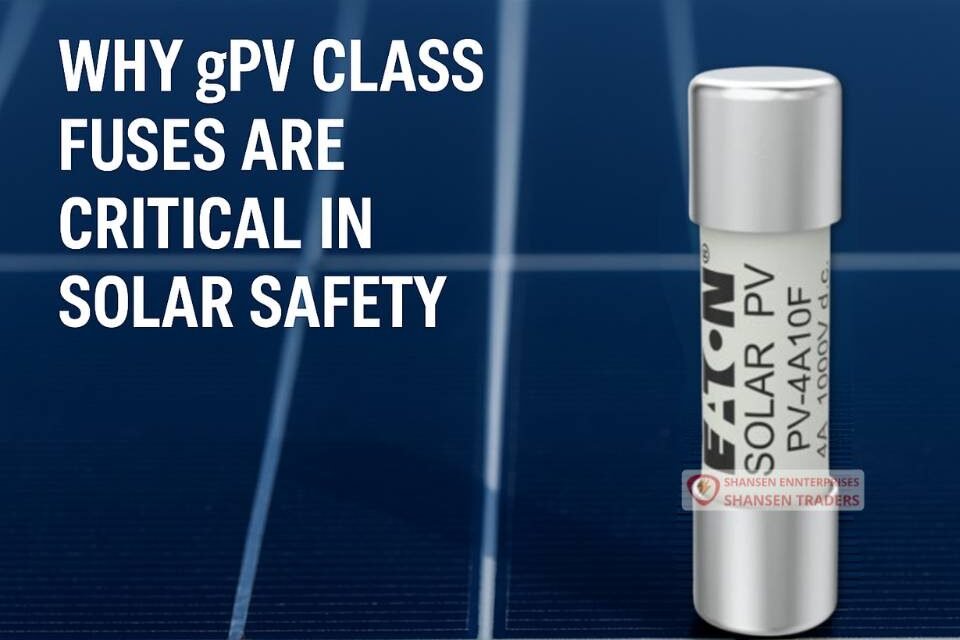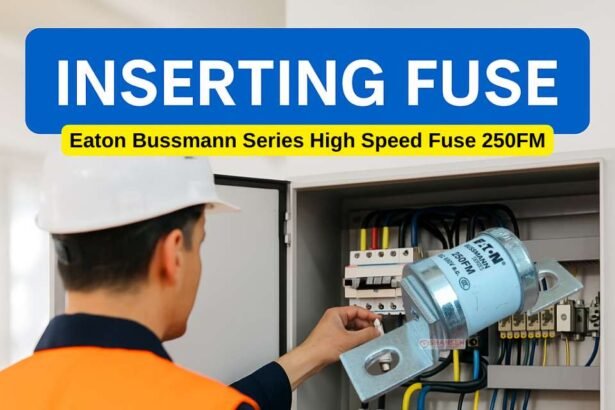The growth of solar energy has transformed how homes, businesses, and industries power their operations. With this shift, ensuring the safety and reliability of photovoltaic (PV) systems has become a top priority. Among the most vital components of solar safety are gPV class fuses, designed specifically for photovoltaic applications. But what makes them so important, and why should solar professionals and system owners rely on them? Let’s break it down.
Understanding gPV Class Fuses
The term gPV refers to fuses that are specifically designed for photovoltaic (solar) circuits. Unlike standard fuses, gPV class fuses are built to handle the unique characteristics of solar power systems:
- High direct current (DC) voltages: PV strings can reach up to 1500 VDC.
- Fluctuating current levels: Solar power output changes throughout the day with varying sunlight.
- Potential fault conditions: Short circuits or reverse currents can damage solar components without the right protection.
A gPV fuse is engineered to interrupt fault currents quickly and effectively, safeguarding expensive PV modules, inverters, and wiring.
Key Benefits of gPV Class Fuses in Solar Systems
1. Tailored for PV Applications
Unlike general-purpose fuses, gPV fuses meet IEC 60269-6 standards, ensuring they are specifically tested for solar power applications.
2. High Voltage Protection
They are capable of handling up to 1500 VDC, far beyond what standard AC fuses can tolerate.
3. Fast Fault Interruption
With fault-clearing times measured in milliseconds, gPV fuses prevent cascading damage across the PV system.
4. Extended System Lifespan
By reducing the risk of overheating, arcing, or catastrophic failure, gPV fuses help maintain system reliability and extend component life.
5. Compliance and Safety
Using gPV class fuses ensures compliance with international safety regulations (IEC, UL, CSA), critical for insurance and warranty coverage.
Common Applications of gPV Fuses
- Combiner Boxes: Protects multiple PV strings coming together in one enclosure.
- Inverters: Prevents damage to sensitive inverter electronics.
- String Protection: Provides overcurrent protection at the module string level.
- PV Wire Harnesses: Safeguards cabling from overloads or faults.
Why Cutting Corners is Risky
Some installers may attempt to use non-PV fuses to reduce costs. However, this can lead to serious risks:
- Insufficient DC interrupt rating → risk of fire.
- Slow response to faults → costly inverter or module damage.
- Non-compliance with safety standards → voided warranties or insurance claims.
The cost of one gPV fuse is minimal compared to the expense of replacing damaged PV equipment or dealing with safety hazards.
Conclusion
In solar power systems, safety is non-negotiable. gPV class fuses are not just an accessory but a critical component that ensures reliability, compliance, and protection. By choosing the right fuses from trusted brands like Eaton Bussmann, solar installers and system owners can operate with peace of mind, knowing their investment is well-protected.
📲 Need Genuine gPV Fuses?
Shansen Enterprises is an Authorized Channel Partner of Eaton Bussmann, ABB, and SECURE Meters, offering PAN India delivery and 100% authentic products. Contact us today on WhatsApp for quick quotes and expert support!




